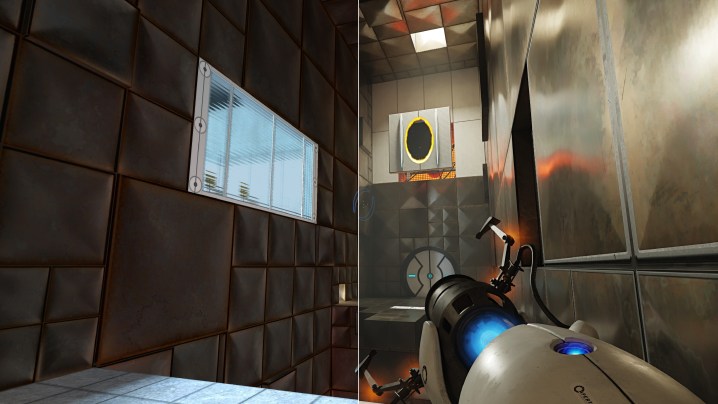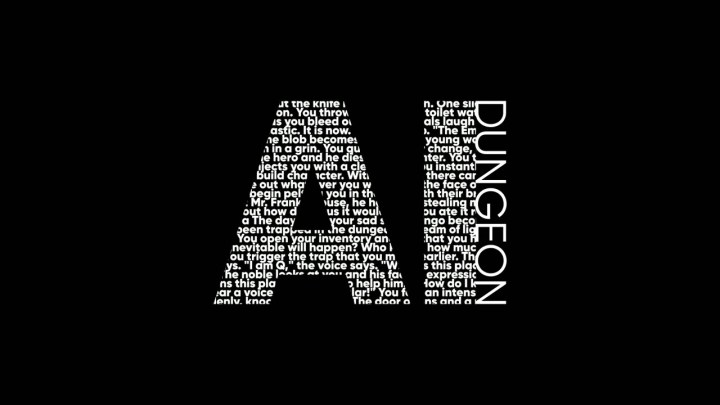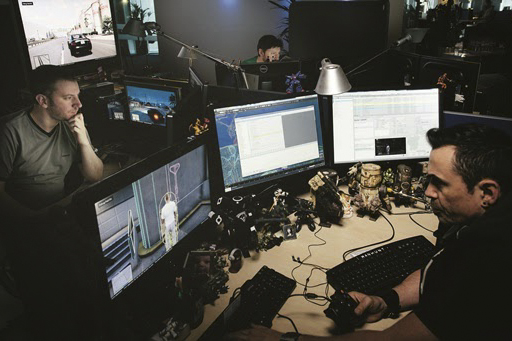The tech community has been oversaturated with AI this past week, from ChatGPT to Google Bard, but not without reason. We see fads like NFTs and web3 come and go, but AI is here to stay — even in your PC games.
It’s not all doom and gloom, though. AI and machine learning has already proven itself wildly useful in PC gaming, and it has far-reaching implications for how games are made and experienced. I’m not trying to fit a square peg into a round hole here — and if you stick with me, you’ll see why.
How it’s being used now

The touchstone for AI in PC games right now is Nvidia’s Deep Learning Super Sampling (DLSS). Train an AI model how to reconstruct a frame in a game and render the game at a lower resolution, and enjoy free performance without an impact on your visuals.
DLSS has gotten really good, and although there are algorithmic competitors like AMD’s FidelityFX Super Resolution (FSR), Nvidia has proven that AI provides an edge. DLSS 3 is a testament to that, providing extra frames generated solely by the AI. AMD probably wouldn’t disagree, either — its latest RX 7900 XTX and RX 7900 XT include a yet-unused AI accelerator.
Beyond upscaling, AI has shown up in Nvidia’s RTX Remix modding platform, which offers a suite of AI tools to enhance textures, add additional lighting to scenes, and more. Portal RTX is a great example of what these AI tools can do to revitalize an aging game.

Nvidia isn’t the only one here, either. A recent mod for the classic Morrowind added voice lines to the game that were generated with AI. With the massive dump of dialogue in Morrowind, that’s something that wouldn’t be possible without either years of work from modders to hire voice actors (unlikely) or a truckload of cash from Bethesda (even more unlikely).
Those are just a few high-level examples of how AI is being used to enhance games today, but it’s important to remember the bedrock of AI within games themselves. Tools like Unreal Engine 5’s MassEntity promise to provide huge batches of AI-driven characters with simple inputs. And that’s one of the most exciting aspects of AI in PC games — its use to speed up game development.
Efficient game development
In 2020, Nvidia trained an AI model to recreate Pac-Man. It was trained on 50,000 episodes of the game, and two neural networks were able to recreate a playable version of Pac-Man without an underlying game engine. No set rules, no parameters — the AI simply looked at the game being played a lot and figured out how to recreate it.
It’s a testament to how far AI has come in terms of accelerating game development. Don’t worry that AI is going to start making PC games for you, though. As Take-Two CEO Strauss Zelnick said in a recent earnings call, “[AI is] not going to allow someone to say, ‘Please develop the competitor to Grand Theft Auto that’s better than Grand Theft Auto‘… people will try, but that won’t happen.”
That may not happen, but Zelnick was clear that AI has a big use in game development. One usage that’s been rising over the past several years is AI-driven Quality Assurance (QA) testing. Players generally spend thousands of hours uncovering only a fraction of bugs in PC games, but AI can run thousands of tests on a game within seconds.
AI can also be used to create more complex, varied games, particularly those with branching paths. For example, AI Dungeon 2, which released in 2019, is a text-based adventure generated by AI that can provide infinite stories. Then there’s the endless string of stories around procedural generation in games like No Man’s Sky that are driven by algorithms creating billions of planets.

Although games like No Man’s Sky are generating new worlds, they still come from a core of human design. Generative AI allows completely new experiences that don’t need set parameters, just enough training.
I recently played the Shadows of Doubt demo — a neo-noir thriller that procedurally generates the full world — via the Steam Next Fest. It allows you to have a completely unique experience each time you play, with different clues, NPCs, and environments. Applying AI to this type of setting should be enough to get anyone excited, as it provides unique experiences for each player that touches the game.
Not without concern

For as exciting as AI is in PC games, it also brings up a lot of valid concerns. After all, we’ve seen a Starcraft 2 AI that beat nearly every player in the world, and it’s not hard to imagine the nefarious uses of AI in competitive games.
There’s also the large swath of jobs in game development that could be impacted by AI. From concept art to level design to voice acting — AI already can handle these tasks, and it’s much cheaper than hiring a league of employees. My hope is that AI is used to expand the scope of game development on this front rather than reducing it. Similar to No Man’s Sky, I hope it’s leveraged to help smaller teams build larger games and not to simply raise the bottom line of the world’s largest publishers.
Although there are valid concerns, there’s also a lot to be excited about. As DLSS, RTX Remix, and something as out of left field as a Morrowind voice acting mod demonstrate, there are uses of AI in PC games that haven’t been imagined yet, and that’s an exciting place to be.
This article is part of ReSpec – an ongoing biweekly column that includes discussions, advice, and in-depth reporting on the tech behind PC gaming.
Editors' Recommendations
- The simple reasons HDR looks terrible on your PC
- It’s time to stop ignoring the CPU in your gaming PC
- You’ll never guess what this YouTuber built into a PC this time
- All of the exciting new GPUs still coming in 2024
- As a lifelong PC gamer, these are the apps I couldn’t live without





